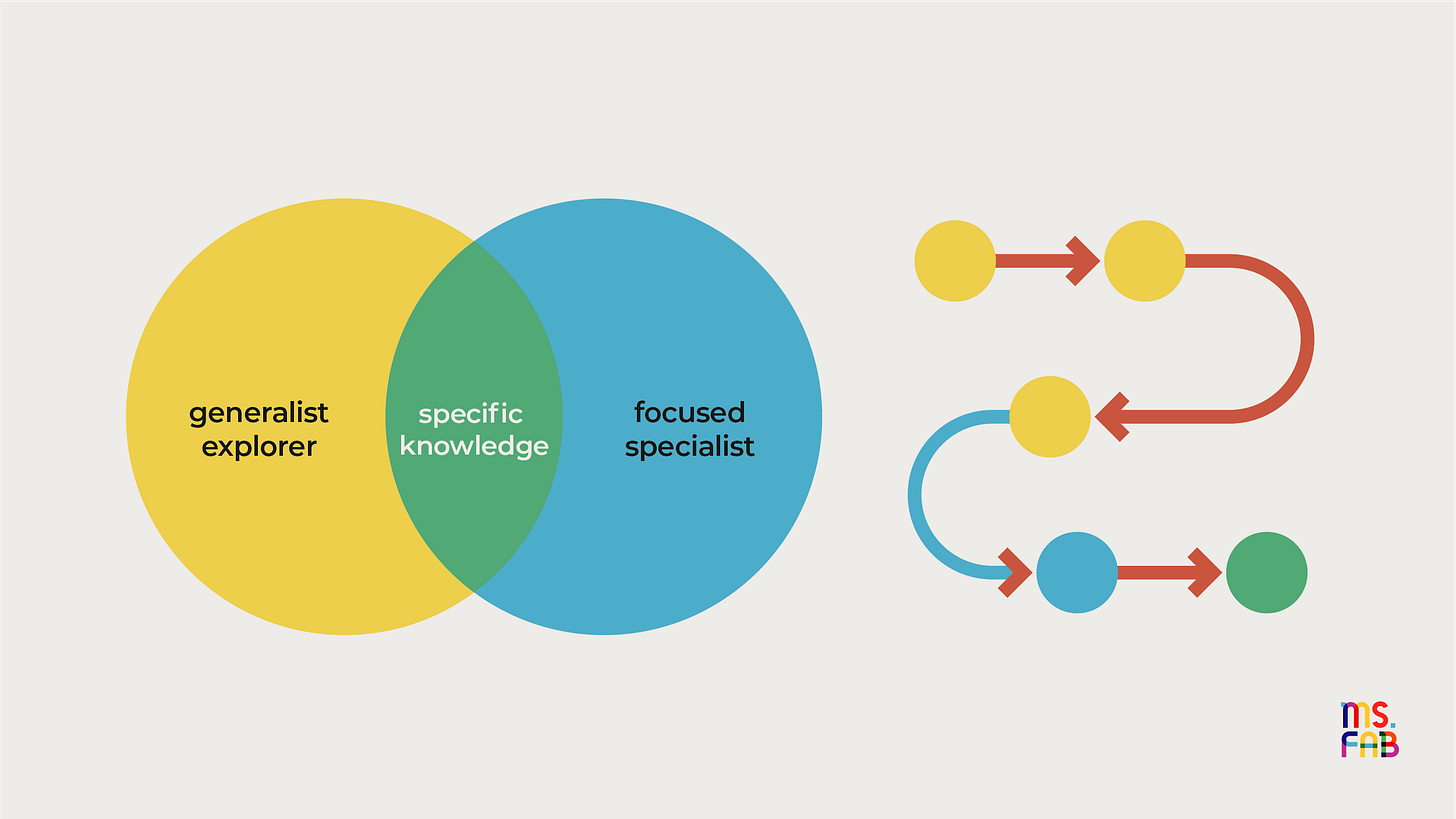Fab Fridays 62: Range
Generalize, then specialize
If we want exceptional kids, we should force them to specialize early… right?
It’s time to bust this myth.
In some fields, early specialization works well.
Think about golf.
Tiger Woods picked up his first putter at seven months old. At two, he was on TV hitting golf balls with Bob Hope. At four, he was practicing eight hours a day, winning bets against adults.
Early specialization worked for Tiger because golf is a predictable sport. The skills he learned at two will apply to golf for the rest of his life. It’s a stable game. Very little changes.
But few things in life are like golf.
We live in a world filled with ambiguity and complexity.
Today, the people who succeed the most know how to navigate constant change. They draw on a generalist background, which equips them to mix different approaches together to face new and unexpected challenges.
In his book, Range, David Epstein argues that “many of the most effective people in elite professional fields (such as sports, art, and scientific research) succeed not despite the fact but because they find their way to that particular field after pursuing other endeavors first.”
In other words, generalism and specialism are friends, not enemies. But the order matters.
Generalize, then specialize.
Not the other way around! Why?
When kids specialize early, it’s easy for them to fall into “functional fixedness.” They may miss creative solutions because they only ever mastered one set of skills.
As Abraham Kaplan wrote, “Give a small boy a hammer, and he will find that everything he encounters needs pounding.”
On the other hand, early generalism gives kids a firm foundation of broad knowledge. Their eyes are open to many different perspectives. They have a big box of thinking tools, which helps them innovate in their specialty later in life.
When you generalize early and specialize late, it helps you develop specific knowledge, which I wrote about last week (read it here!). You’re building a knowledge stack. You’re honing in on what you can offer the world that no one else can.
So, before you sign up your 8 year-old for daily golf lessons, try these tactics to help them develop range:
Range is not about forcing your kids to get As in every subject, or enrolling them in five different after-school programs.
Instead, it’s about letting them explore and play and try many different things. It’s about cheering them on when they venture outside their comfort zone. Above all, it’s about celebrating with them as they discover what they love to do most.
I will be sharing more about specific knowledge and range at a workshop with David Perell on August 18. Register for the workshop below!
FISH SIMULATION
Welcome to Fish, our newest Synthesis simulation! Watch the video below, it’s absolutely incredible.
In Fish, students are confronted with uncertainty and risk at each turn. They have to strategize and collaborate to make sense of complex ecosystems with carrying capacities and dangerous cyclones!
In order to win, teams need to maximize profit, sustainability, diversity of catch, and efficiency, all while making sense of the complex and ever-changing high seas of Fish.
And in case you haven’t already, check out some of our other simulations: Constellation and Art for All. More Synthesis simulations coming your way soon! Stay tuned.
Until next week,
Ana Lorena Fabrega





